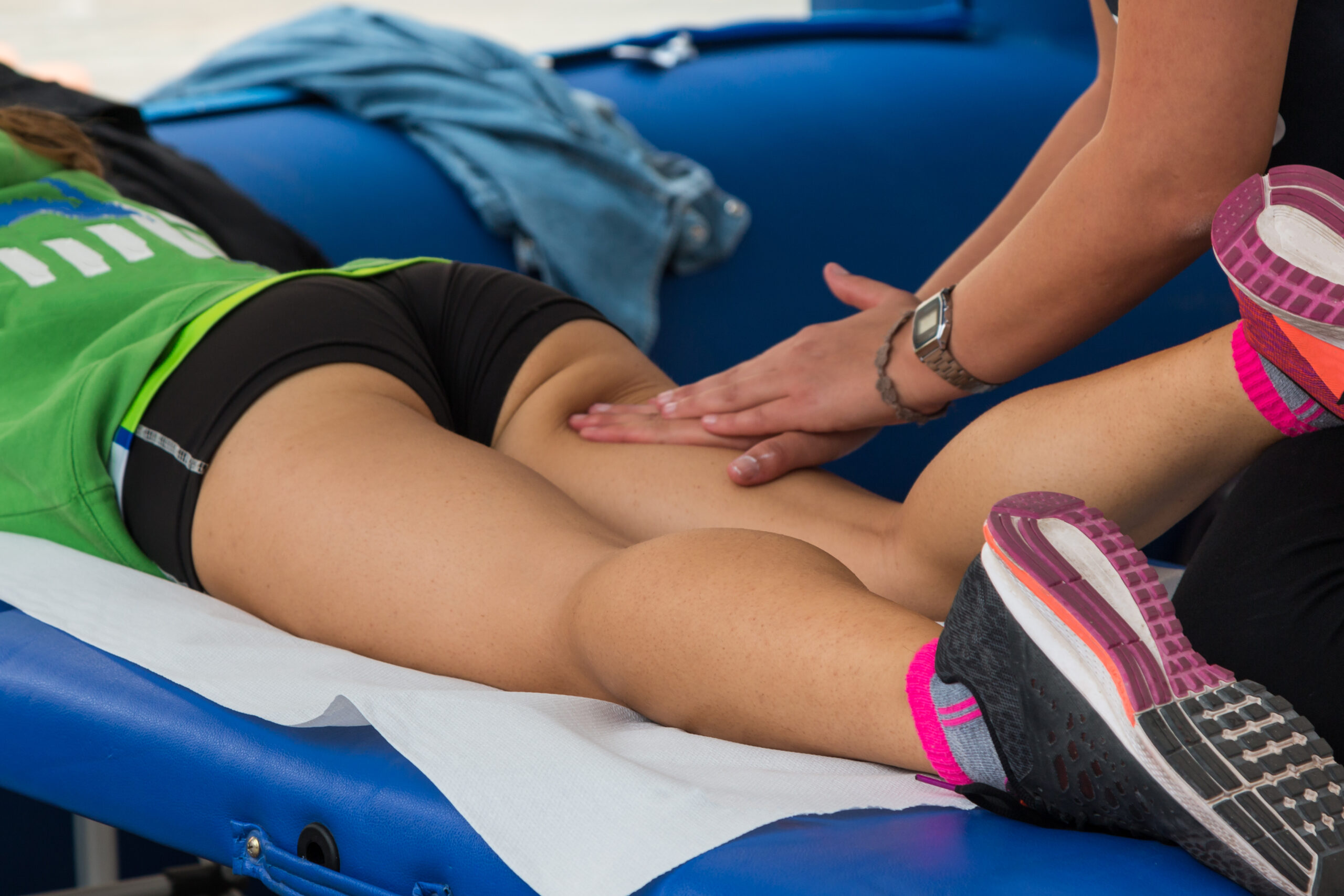What is Myotherapy & how can it help you?

A Myotherapist adopts a specialised approach to clinical assessment and treatment, incorporating injury prevention, health and fitness advice and exercise prescription into their sessions, in addition to extensive soft-tissue treatment (massage).
It is important to understand that with less mobility in the body, less stability is created, thereby increasing the risk of injury by 49%.
A Myotherapist will assess musculoskeletal conditions and physically treats myofascial pain, injury and dysfunction that may be affecting movement and mobility and causing you discomfort. Myotherapy is applied in the preventative, corrective and rehabilitative phases of therapy, to enable restoration and help maintain the normal integrity of the soft tissue structures (muscles, tendons, ligaments and fascia).
Myotherapy works great as an adjunctive alongside Chiropractic treatments, enabling more profound and longer lasting results. By providing evidence-based care a Myotherapist can facilitate the desired outcome and improve your everyday life.
Pain or symptoms caused by muscle (myo) or fascia is described as myofascial. Myofascial pain is often described by the patient as a ‘deep ache’, ‘tightness’ or ‘tenderness’ in an area. It can vary in intensity and radiate to other areas. Other symptoms can include reduced range of motion of muscles and joints, stiffness, fatigue, weakness, numbness or a tingling sensation. There are many other symptoms depending on the condition and patients can have one or many symptoms.
What to expect from a Myotherapy consultation?
When examining a client, a Myotherapist will generally look not only at the specific area of pain or tightness that the client reports, but also more generally at the client’s posture, including associated areas. Occupational and environmental factors which may aggravate or otherwise contribute to their condition to determine the potential causes of dysfunction are considered. Assisted by highly developed tactile, palpatory skills and a thorough understanding of joint and muscular regions. These skills distinguish Myotherapy from other physical therapies.
Treatment
A Myotherapist may utilize various different modalities in the treatment and may include individual or multiples of the following; Sports Remedial Massage, Soft tissue manipulation, Myofascial release (MFR), Positional Release Therapy (PRT), Trigger Point Therapy, Myofascial dry needling, Muscle Energy Technique (MET), Proprioceptive Neuromuscular Facilitation (PNF), Cupping, Mobilization Techniques (Mob’s), Thermal therapy/Cryotherapy, Postural assessment and correction, Corrective exercises (stretches, mobility), giving you a well-rounded and more holistic approach.
Common conditions that Myotherapist can treat include:
- Stiffness & pain associated with poor posture
- Associated joint & vertebral dysfunction & pain
- Acute & chronic conditions affecting function & mobility
- Sporting, occupational and rehabilitative stage of an injury or illness
- Headaches / migraines, Acute and chronic stiff and painful neck
- Chronic overuse syndromes – tendonitis, RSI, tennis/golfer’s elbow, carpal tunnel
- Acute & chronic back pain / ‘sciatica’
- Scoliosis / Kyphosis
- Shoulder pain, impingement syndrome, frozen shoulder
- Hand & finger numbness / tingling – thoracic outlet syndrome
- Knee, leg & foot pain – shin splints, patella tracking dysfunction, ankle sprains
- Pregnancy – pre/post-natal complaints
- Pain & dysfunction associated with stress & tension
